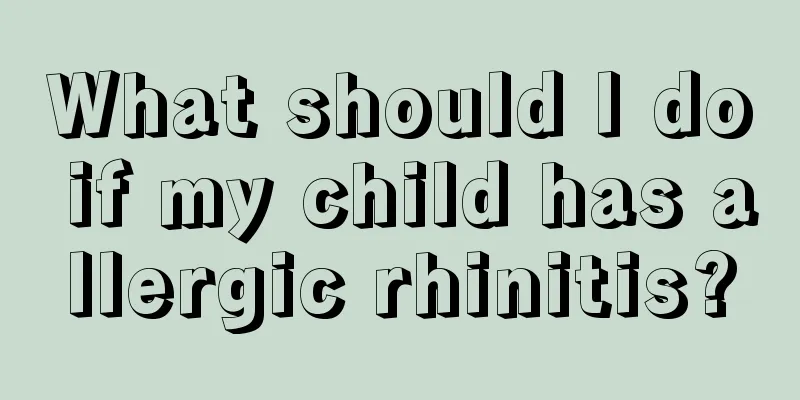What are the dangers of anal injections in children?

|
Because children's physical development is not complete and they are naughty and active, they often suffer from problems such as colds and coughs. When a child falls ill, parents will inevitably feel very distressed, and children are often afraid of injections and taking medicines. Therefore, there is now a method of injecting medicine through the anus to treat common diseases in children, which is very popular among parents. Anal medication is actually called rectal medication. Is there any harm in doing so? The rectal route of administration often has certain advantages in children. For example, for infants who are vomiting and young children who are unwilling to take the drug orally, in order to reduce the loss of dosage after taking the drug and vomiting it, to ensure the smooth process of administration, and to improve the treatment effect under special circumstances, the rectal route of administration is very suitable. Many mothers say, since this is such a good way of administering medicine, why not develop all medicines for children into rectal administration? The reason is actually very simple, because not all medicines are suitable for this route. That is to say, some drugs can be absorbed in the rectum, pass through the rectal mucosa, and then enter the blood circulation. However, some drugs cannot be absorbed in the rectum, so they cannot enter the blood circulation, and thus cannot reach the lesion site, and thus cannot produce a therapeutic effect. So if it can be absorbed by the intestines, can it be used for rectal administration? Not necessarily. In addition to absorption factors, the physical and chemical properties of the drug must also be considered. For example, some drugs may irritate the rectal mucosa. Such drugs cannot be administered rectally because if the intestinal mucosa is damaged while treating the disease, the result will be counterproductive. Another disadvantage of rectal administration is the differences in body structure among children of different age groups. For example, due to the relatively large individual differences in rectal venous return, there will be differences in the degree of drug absorption, which may cause insufficient therapeutic doses or therapeutic doses exceeding the toxic dose. For the same disease, some children have no effect when given rectal medication at a normal dose, or other children can take the normal dose safely, but some children may experience side effects due to large fluctuations in absorption concentration. Therefore, there are relatively few medicines that can be administered rectally in children, and even the few suppositories for children are not perfect. For example, suppositories have been developed for acetaminophen. Although they can be administered rectally, their absorption may be unstable and their efficacy may vary in different children, so the efficacy cannot be guaranteed. In addition to suppositories, there are also solution-type enema solutions, such as pediatric acetaminophen enema solution. Although its main ingredient is the safe acetaminophen for children recommended by the World Health Organization, and oral acetaminophen, it can also be used by infants and young children, no more than 4 times a day; However, after the enema solution was made, the drug instructions changed. The instructions for the enema solution clearly emphasized that it should be used 2-3 times a day, and clearly warned under the contraindications that it is prohibited for children under 3 years old. In addition to unstable absorption, rectal administration has another disadvantage, such as the dosage of rectal suppositories. It is impossible to choose the dosage for children of different ages because the manufacturer's rectal suppositories only have 1 or 2 dosage specifications. For younger children, it is impossible to cut the rectal plug into two halves, or even if it can be cut and used, it is impossible to accurately control the dosage; for older children, one suppository is not enough, and because of comfort issues, it is not recommended to use two suppositories at a time. Therefore, whether or not to use rectal medication for children depends on the child's age, the physical and chemical properties of the drug, whether there are alternative drugs, and whether there are ready-made dosage forms on the market that can be used directly for rectal administration, rather than self-prepared enema solutions. |
<<: Why does my child have nosebleeds frequently recently?
>>: How to stop nosebleed in children?
Recommend
How to treat simple pityriasis in children
Everyone is familiar with the skin disease pityri...
Fruit salad recipes for kids
Parents are more concerned about their children&#...
Baby cold massage
It is quite common for babies to catch a cold due...
Baby has fever and low white blood cell count
When your baby has a fever, if the white blood ce...
What causes rheumatoid arthritis in children?
In today's life, no matter what disease it is...
Mom, do you know the symptoms of chronic enteritis in children?
Chronic enteritis is very harmful to children and...
Children's brain is not fully developed
Brain dysplasia is a relatively harmful pediatric...
Causes of goiter in children
Children's goiter may be caused by thyroid en...
What are the symptoms of febrile convulsions in babies?
The health of our baby is the greatest wish of us...
What to do if your eight-month-old baby is very active
At three months old, babies can roll over, at six...
The child's eyes are full of eye mucus when sleeping
Eye boogers are formed by the oil secreted by the...
What are the symptoms and prevention measures of mumps?
Mumps is a common disease that occurs when the pa...
What to do if your teeth are loose at the age of 15
It is often said that toothache is not a disease,...
Why do children love to blink?
Children's love of blinking is a very common ...
How to quickly relieve children's toothache
The most common disease for children during their...









